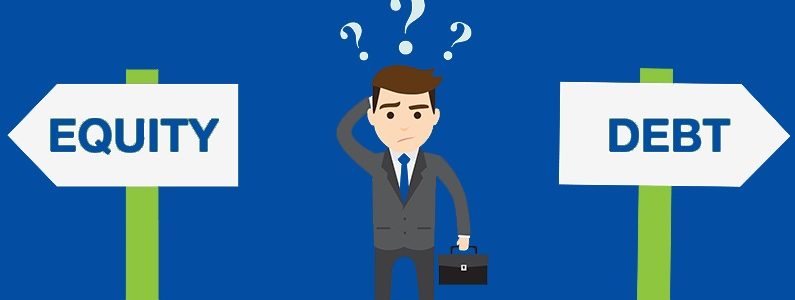
When considering investments, one of the most important decisions to make is whether to invest in equity or debt funds. Both types have pros and cons, and depending on your financial situation and goals, you can decide which one suits you best.
Equity funds are those that invest primarily in stocks. They can be volatile but offer the potential for higher returns than debt funds over the long term. Debt funds, on the other hand, provide more stability and lower risks as they are invested mainly in bonds or securities with fixed interest rates.
In this article, we’ll take a look at both types of mutual funds and cover how to choose between equity vs debt funds based on your personal objectives. We’ll also look at the advantages and disadvantages of each to help you decide which option is best for you.
Advantages of Equity Funds
Equity funds are a great choice if you’re looking to make long-term investments with the aim to generate higher returns over time. Investing in equity funds provides greater potential for capital appreciation than debt funds, as stocks have the potential to increase in value over time. Moreover, they provide diversification by investing in a variety of stocks, thus reducing the risk associated with any individual stock or sector.
Additionally, no fixed interest rates are associated with equity fund investments, so their return rate can fluctuate depending on market conditions. This means that investors can make significant profits when the market is doing well but can also suffer losses if it dips.
Disadvantages of Equity Funds
While equity funds do offer greater potential for returns than debt funds, they come with more risks and are more volatile. Investing in stocks carries a higher risk of capital loss as stock prices tend to fluctuate due to market conditions or company performance. Furthermore, there’s no guarantee that an investor will profit from their investments as the market always has an element of unpredictability.
Moreover, investors need to be aware that equity funds require longer-term commitments and thus may not be suitable for those looking for short-term gains. It may take several years for equity funds to show returns, as stock prices are affected by a range of factors, making it difficult to predict the exact outcome.
Advantages of Debt Funds
Debt funds are generally less risky than equity funds and provide more stability. The most common type of debt fund is a bond or fixed-income security, which offers investors the security of predictable returns in the form of interest payments. This means that investors can be assured that they will receive their investment back with a guaranteed rate of return regardless of how the market performs.
Moreover, debt funds tend to generate lower returns but offer greater liquidity than equity funds as they require shorter-term investments. This makes them an ideal choice for those looking for short-term gains or steady income over time.
Disadvantages of Debt Funds
The main downside of investing in debt funds is that their returns are generally lower than equity funds. This means that investors may not be able to generate significant profits over the long term as they would with other investment options. Also, debt fund investments can become illiquid if the bond issuer defaults on its payments or goes bankrupt, resulting in a loss of principal for the investor.
It’s also important to note that debt funds can be subject to interest rate risks if market rates change during the time of your investment. This means that you could potentially profit from a decrease in interest rates but suffer losses from an increase in them.
Conclusion
Ultimately, when it comes to choosing between equity vs debt fund investments, it’s important to understand your personal financial goals and risk appetite. Equity funds offer greater potential for capital appreciation but carry higher risks, while debt funds are less volatile but provide lower returns. Whatever you choose, you must do your research and always invest cautiously.
Armed with this information on the advantages and disadvantages of equity and debt funds, you can now decide which option is best for you. Good luck!

